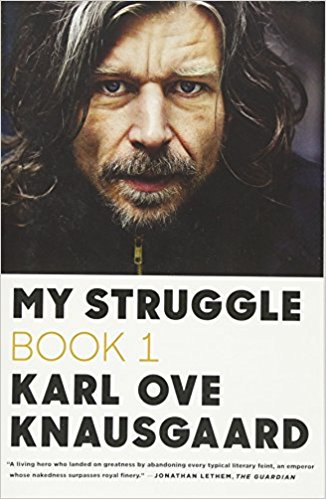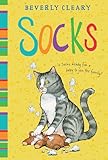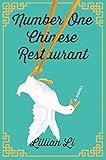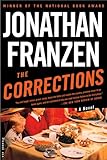1.
My first book was published on September 4, and I was supposed to interview the writer Karl Ove Knausgaard in front of an audience on September 24. In early summer I obtained the six volumes of My Struggle, and the four volumes of the Seasons Quartet. I put these together in a pile and added the book he wrote about soccer, and noted down the names of his earlier books. I was going to read them all, I told myself, and I also told this to the somewhat incredulous organizers. The writer who first interviewed him for the same program, I suspected, did not read all of Karl Ove Knausgaard’s works to prepare. But that writer had male authority, and I don’t.
The middle days of summer slipped by. I developed a “bit.” “How are you feeling about your book?” someone might ask, and I would say, jauntily, “I’m glad I have this Karl Ove Knausgaard thing looming, because it means I can’t even be anxious about my own book, haha.” 
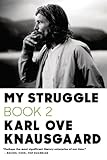 This was not entirely true. It is true that my anxiety was more dispersed than it might have been, but it was still there in quantity. The Knausgaard assignment felt like a metaphor for other things in life—everything I have ever enrolled in and then realized, with absolute certainty and invariably too late, that I do not have the constitution for. (This is usually how I feel about good things: The book that I myself wrote, for example, or sometimes, the children I gave birth to.) How had I, a person genuinely awe-struck by people who do half-marathons, so cheerfully signed up for the greatest feat of endurance in contemporary letters?
This was not entirely true. It is true that my anxiety was more dispersed than it might have been, but it was still there in quantity. The Knausgaard assignment felt like a metaphor for other things in life—everything I have ever enrolled in and then realized, with absolute certainty and invariably too late, that I do not have the constitution for. (This is usually how I feel about good things: The book that I myself wrote, for example, or sometimes, the children I gave birth to.) How had I, a person genuinely awe-struck by people who do half-marathons, so cheerfully signed up for the greatest feat of endurance in contemporary letters?
The waning days of summer slipped by. I started to panic. There was always a volume of My Struggle with me, and thus Karl Ove, or the version of Karl Ove that Karl Ove had seen fit to enshrine on the page, was with me. Karl Ove was with me when I got into bed at night, before my husband demanded that we turn out the lights. He was with me on the bus. He was with me at restaurants and coffee shops. As my own publication date approached, as I had less and less time to read, I read volumes 1 and 2 closely. I was not insensible to the fact that I had taken on an enormous amount of labor for A Man, and that angst about this was going to overshadow my own big day. I noticed that I was developing a little rash on my neck, just under the hairline (it is still there). Karl Ove was with me when I ate two orders of fried chicken wings from the restaurant around the corner, even as I was supposed to be slimming in advance of my publication date. “I was wondering whether you would finish all of those,” the server said admiringly. She was talking about the wings, which I could finish, and not the books, which it had become obvious I couldn’t. I skimmed volumes 3 and 4.
2.
One problem with reading My Struggle is that after each session I could remember almost nothing substantive—certainly no lines stood out in memory, although there were many that stood out as I was reading, many that I underlined and circled and asterisked. Reading the books was a strange, dreamlike experience, a quiet onslaught. When I first started, when I still felt like I had some time, I took notes on almost every page. When I knew that I didn’t have enough time, I started taking only very crucial notes on the endpapers. I told myself I was only allowed to have as many thoughts as there was room on the endpapers of each book.
What do I remember? I vividly remember the part where he and his brother clean the filthy house of his grandmother after his father dies there. I remember that this was one of the parts that incensed his litigious uncle, who loomed over Karl Ove’s own pre-publication period. I remember that Karl Ove seems to hate things involving book publicity, like, for example, being interviewed on a stage.
3.
I spent a lot of time, after delivering my “bit,” hearing people be scornful about Karl Ove Knausgaard. And I understand it, even though I love the books. I am mad, too. The project is amazing in its hubris. But it is also very interesting. The character of Karl Ove who is written in the pages is maddening. But he is also very interesting. When I was reading I thought about how similar I felt to him in some ways, but how I am really probably more like his second wife, with whom I felt less affinity (he wrote her, after all). I felt utterly reproached by his level of involvement in the housekeeping, by his mania for order, by a participation in domesticity that demolished my excuses about my own artistic production and my domestic shortcomings. I have fewer children, and fewer books written or read, and a messier house. Karl Ove writes about how this discrepancy enraged his second wife, too.
It pained me how good his descriptions were of getting children out of the house, or just doing anything with children. One place where Karl Ove was not with me was when I was on my way to or from daycare and preschool pick-ups and drop-offs, when I only “read” my phone as I swayed on the bus. Sometimes I had a baby strapped to me as I did this, one of the cuter babies in history, and sometimes I would forget that she was there for a while and then look down and find her playing peek-a-boo with a grandmotherly figure on the bus. I felt reproached by this, too. “Put your phone down and notice her, idiot,” I imagined these women were telegraphing to me. “Life is so short.” Now I am reading Socks by Beverly Cleary to my older daughter and it makes me feel a little better: Mrs. Bricker sits at her typewriter typing papers while her baby plays on the mat. She gives the baby spoons and other kitchen junk to play with.
I became obsessed with Norwegian and Swedish social policies. Back with Karl Ove, I underlined every part where he scoffed at Swedish sanctimony and hypocrisy. TRY LIVING HERE, I would scream in my head, to no one. I couldn’t help noting that this reading assignment was the corner office in the women’s work of thinking about men who are not thinking about you.
Rather on the nose, right before my book came out, I was afflicted with strange long-term bleeding (27 days) which, after much poking and scanning and taking of pills, was determined to be the result of inefficiently weaning the baby two months before, and resulting hormonal storms.

4.
Book 6 came with me on my short book tour. When it arrived in the mail I laughed because it’s simply enormous, and a peculiar shape. It became its own metaphor. On the airplane, it was my personal item. I jammed it under the Ziploc bag of 3-ounces-or-less toiletries, in a shoulder bag whose straps weren’t up to the challenge. At JFK, I was called for extra screening. The agent removed the book from the bag and wiped its fore-edge with the strip of paper they stick into a machine to see if it’s a bomb. I had to bite my tongue to avoid saying something like, “It’s not a bomb, haha, just a very big book!”
But it was a bomb. It was a ticking time bomb, poised to blow me up on the stage of San Francisco’s historic Nourse theater, the detonation broadcast by my local NPR affiliate. “How do you think Sweden’s social policies have fit in with your life as a working writer and parent?” I would say. “Why do you want to know?” he would say, smoldering and furious. I would forget everything, I would sound stupid, I would look ugly, I would have the wrong outfit, I wouldn’t know how to pronounce Karl Ove Knausgaard, I wouldn’t know how to pronounce Knut Hamsun, no one would buy my book, I would never write a second book, I would be mean to my children.
Meanwhile, I purchased more makeup products so that if someone took a picture of me at my own book readings I wouldn’t look as shitty as I felt. I calculated the number of pages I had to read per day to finish the book and skim the neglected book 5. I wished I could be reading anything else. My book came out around the same time as a huge glut of wonderful books, some of which I decided to read instead of Karl Ove: Number One Chinese Restaurant, The Incendiaries, Boomer1, All You Can Ever Know, A Terrible Country. Before Karl Ove loomed I read Like a Mother, which every person in America should read whether they intend to reproduce or not.
While on vacation I read Severance and have evangelized madly about it to anyone who will listen: a book about work that puts the work in the context of globalization, a book that is mordant and sad and full of quicksilver allegories. I loved that book so much. I also loved A River of Stars, which checks my favorite boxes for fiction—it communicates something complicated about society, you root for the people in it, you see the sights and taste the food and hold the babies it describes. It’s also a great California book. Before Knausgaard I read other books about the American West, city and country. I read The Wild Birds. I read In the Distance. I read This Radical Land, the parts about California. I read Chosen Country, about the Bundys and Malheur. I read There There. I missed these books. I missed reading books that you could finish.
The prospect of going on the book tour was very exciting from a distance, because as a concept it combines “business trip” with “artistic temperament” and everything decadent and slightly immoral that is supposed to go along with those things. I laugh to think about this now because like many things that seem sexy and glamorous from afar, the reality was somewhat different. The reality was me, and my anxiety and my rash, missing my family and feeling guilty for leaving them, and eating roadside muffins and carrying Karl Ove around in my bag. On the train from Philadelphia to New York I thought suddenly about a book I had read months earlier, Fire Sermon, which is a quiet bomb of a book about fidelity and infidelity and desire. I remembered it being about about the spot where desire and reality coincide, and this applies to sex and love, sure, but also to career and art and everything a person might secretly yearn for in the night, every road not taken, every experience of the thing you want and the thing you get being both the same thing and somehow, different things entirely. I thought about that novel with a kind of yearning. I wanted to cheat on Karl Ove. I also wondered if Karl Ove would have delivered me anything like this amount of angst if he weren’t so handsome in all his author photos, if he didn’t cavalierly smoke cigarettes and famously break hearts. (Probably not.)
All this was irrelevant, because September 24 loomed. With seven days to go until Knausgaard Night, I worked on Volume 6 in the subway during a day off on the tour. I went to the Metropolitan Museum. The subway was nice and cool and I had a seat and a pen and the air felt conductive. I didn’t itch, my brain was working: I was getting serious. And as so often happens in the procrastinator’s life, it felt like I was getting serious just late enough to do a less-good job—to have a sense of the job I might have done, and to mourn it. I paused to mourn; I scribbled notes on the nice woven endpapers. I had questions I was going to ask, about politics and national identity. I could feel a woman adjacent watching me. Shortly before we disembarked she asked me if I was a writer and I said, after some hesitation, “Yes.” She said she wished I could teach her to write and I said I wished so too, although there are many people more qualified. In the museum I looked at paintings and sarcophagi and papal frocks and I was so happy, and the bomb felt light in my bag.
The next day, I was standing in the rain outside a subway entrance and checked my phone before descending. There was an email: due to unforeseen events, Karl Ove Knausgaard was regretfully canceling his appearances. The bomb detonated with a fizzle. I had not even gotten to Hitler. The relief was tremendous, but after the adrenaline something else swept in, something bittersweet.
5.
And then I could freely read other things, books on their way to publication: I read American Spy by Lauren Wilkinson, which is about what it says in the title but about so much more—about patriotism and disillusionment and black Americans in federal service and communist panic and American governmental and para-governmental fuckery regarding foreign governments. I read The Trojan War Museum by Ayşe Papatya Bucak, a collection of short stories that finds many terrible and miraculous moments—real and less-real, past and present, in America, in Turkey, in the Ottoman and other empires—and turns them into gorgeous, living, provocative stories and vignettes. I read The Round House, which is not new but which was new to me. I loved these books.
I took a break from Karl Ove, so I have still not gotten to Hitler.
6.
Two months later the organizers of the Knausgaard program, who are lovely people (and who still paid me something for the canceled job), invited me to deliver a brief introduction to Jonathan Franzen as a consolation. This is another man who people are often mad at and whose work I love. This didn’t carry anything like the drama of the thwarted Knausgaard night, because I didn’t have to read anything new and the introduction was three minutes long. It also took place a few days after my father-in-law died, and this had put things into perspective.
Our friends and neighbors cared for my children like they were their own, picking them up and feeding them and putting them to bed while I got my hair blown out and taped up the hem of my formal jumpsuit and practiced saying my three-minute introduction into my phone. Jonathan Franzen was affable, and the writer Kathryn Chetkovich, who was there too, was kind (actually, I did read something to prepare—I read this remarkable essay by her). When I got home I took The Corrections off the shelf. Although the particulars are wildly different it still seemed like a suitable thing to read when you are mourning the passing of a white father from a particular generation in America. My father-in-law, a member of the Silent Generation, was another man with whom I carried on mostly imaginary conversations. Now that he is gone I don’t find myself using Facebook as much, because lately I had mostly used it for these conversations. I had used it to say: “I’m furious about the state of the world.” He had used it to say: “I’m proud of you.” My husband wasn’t home, because he was still with his family doing the much harder work of a grieving son. I kept the lights on in bed as long as I wanted, read a book I knew I could finish, and was briefly consoled.
More from A Year in Reading 2018
Don’t miss: A Year in Reading 2017, 2016, 2015, 2014, 2013, 2012, 2011, 2010, 2009, 2008, 2007, 2006, 2005
